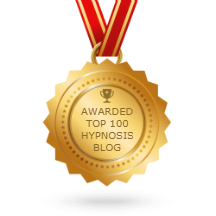By Hervé Boisdé
‘Get Out’ actor Daniel Kaluuya
Since I’m writing this blog on Halloween I want to address something that we can all relate to. Fear. Fear is so universal that Hollywood has been able to capitalize on the horror movie genre since the beginning of movie making. One of the most successful scary movies in recent years was ‘Get Out’ starring Daniel Kaluuya. He plays the lead character “Chris” who is a black man dating a white woman (Rose). The couple visit Rose’s parents and things start to get creepy. One night when Chris is having trouble sleeping, Rose’s mother, who is a therapist offers to hypnotize Chris to cure him of his smoking addiction. He has a horrifying experience while in hypnosis and appears to be stuck in the “sunken place” which is kind of his personal hell and is powerless to escape. After Chris comes out of hypnosis things go from bad to worse and it seems like he’s being groomed to be part of cult where other black people are being mind-controlled through hypnosis to have no free will and do the bidding of the white family.
Pretty spooky stuff.
Except that like most Hollywood movies involving hypnosis, it’s complete nonsense. You would probably note that almost all pop references to hypnosis in movies and TV are based on goofy stereotypes about hypnosis. The script writers know that most people don’t know much about hypnosis and have never tried it in real life. And since we are naturally afraid of the unknown its very easy and convenient to use an evil hypnotist as a character to add drama and fear to any plot.
So what’s the reality? Should people be scared of trying hypnosis? In a word: no.
Let’s break down all the stereotypes that are usually depicted in Hollywood.
1) Hypnosis is mind control
2) You can get stuck in hypnosis
3) You’re unconscious and won’t remember what happened afterwards
4) Hypnosis is like a truth serum. You’ll reveal all your secrets
5) Hypnosis is dangerous
All of these stereotypes are false. These are the common misconceptions about hypnosis that the writers exploit to create the fear factor. Hypnosis isn’t dangerous. Just like meditation hypnosis is a natural altered state that is actual very beneficial to the body and nervous system, as well as the mind. Hypnosis is naturally relaxing and because of the mind/body connection, when you are physically more relaxed, your mind also benefits from that by becoming more relaxed.
And no, hypnosis is not mind control. You can never be forced to do something that goes against your personal beliefs and moral code while in hypnosis. In fact, you cant even be hypnotized against your will. So in a sense all hypnosis is self-hypnosis. And don’t worry about the sunken place. No one has ever been “stuck” in hypnosis. All you need to do to come out of a trance state is to simply open your eyes. Easy peasy.
When someone is hypnotized they are in a relaxed altered state but they are not asleep or unconscious. Most people remember everything that happened after they come out of hypnosis. The exception is if they go deep into a somnambulistic state. That’s a very deep state of hypnosis that could actually be used for anesthesia to perform surgery without drugs. It’s super rare that someone will go that deep without an extended amount of effort and the person would also want to achieve that state voluntarily.
And finally, hypnosis isn’t a truth serum. You'd be more likely to say something embarassing the next time you go out drinking.
So to sum up, don’t believe all the myths about hypnosis. Hypnotherapy can be extremely beneficial for a large variety of issues such as phobias, anxiety, behavior modification and medical problems. The only thing to fear is fear itself.
Happy Halloween!


